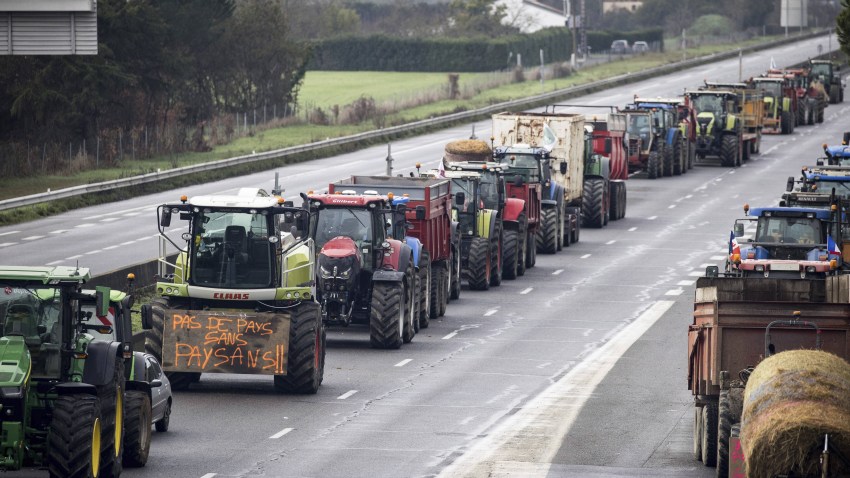Farmers’ protests in France expanded overnight, as convoys of tractors began blocking more roadways in the country’s southwest region as part of a nationwide protest. Grievances across the movement vary, but they are broadly focused on rising energy costs, a government push to lower consumer prices and environmental regulations. (Reuters)
Our Take
France is now the latest European country to experience a mass protest movement based in the agricultural sector. The Netherlands has experienced intermittent farmers’ protests since 2019, while German farmers mobilized earlier this month, with their protest culminating in Berlin just last week.
To be sure, farmers’ protests in France are not uncommon, often directed at European Union quotas on production. But the latest wave of protests all share similar grievances over climate policy, as environmental regulations designed to cut emissions disproportionately affect the agricultural sector. In the Netherlands, mass protests were sparked by opposition to a law that would have required farmers to cut the size of livestock herds to reduce nitrogen pollution, while German farmers are protesting proposed cuts to agricultural subsidies on diesel fuel.

